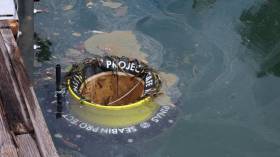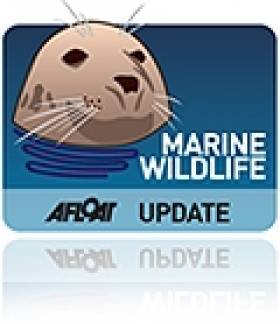Displaying items by tag: Ards Peninsula
Seabins To Clean Up Ards Peninsula In Council Plans
#Seabin - Ards and North Down Borough Council wants to bring in the Seabin to help clean up the coastline of the Ards Peninsula, as the Belfast Telegraph reports.
The council plans to purchase 10 of the devices — which capture floating debris in harbours and marinas — in what’s being touted as a first for Northern Ireland.
Earlier this year, Dun Laoghaire Harbour in Dublin saw the installation of its first Seabin thanks to the campaigning efforts of local girl Flossie Donnelly.
It’s hoped that the move by Ards councillors will see further take up around the Northern Irish coast.
The Belfast Telegraph has more on the story HERE.
Another Humpback Whale Sighting - This Time in Northern Ireland
#MARINE WILDLIFE - The Irish Whale and Dolphin Group (IWDG) has confirmed a new humpback whale sighting, this time in Northern Ireland.
According to the IWDG, this is the third consecutive year that a humpback whale has been spotted in Northern Irish waters, with this sighting being only the fourth ever validated record for the species in the North.
IWDG sightings co-ordinator Pádraig Whooley described it as "an important development [that] highlights a trend towards increased sightings of this large baleen whale species in Irish waters."
He also remarked on the "unusual" location of the sighting in the fast-running waters of the Strangford Narrows at the Ards Peninsula.
The discovery comes just a week after confirmed sighting of two humpback whales at the opposite end of the island of Ireland, off Galley Head in West Cork, as previously reported on Afloat.ie.
New Owners for 'Iconic' Hotel on Strangford Lough
#WATERFRONT PROPERTY - A 14-bedroom hotel overlooking Strangford Lough has been purchased by the owners of the five-star Merchant Hotel in Belfast.
Caterer and Hotelkeeper reports that the Portaferry Hotel will undergo a £100,000 (€116,700) refurbishment under its new ownership by the Beannchor Group, which is expected to help create 10 new jobs.
Bill Wolsey of the Beannchor Group said he was excited about the prospects for the "iconic" 18-century landmark.
"The restaurant has one of the finest food offerings in the area and I am confident it will be quickly established as a firm favourite with food lovers in the Ards Peninsula and further afield," he said.
































































